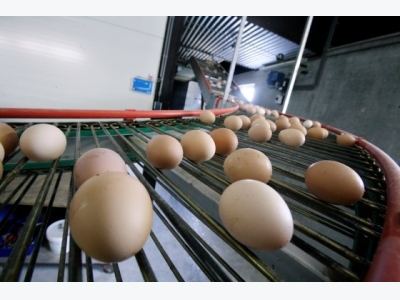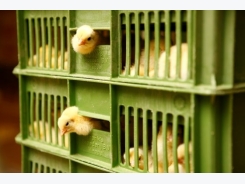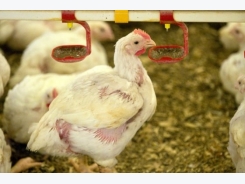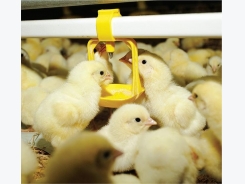Impact of egg sweating on Salmonella penetration

Salmonella enteritidis prevalence in eggs is a major concern to the egg industry.
Salmonella can be introduced into an egg through some 10,000 pores in the shell. Photo: Koos Groenewold
Salmonella can be introduced into an egg through some 10,000 pores in the shell and entry could be facilitated by “egg sweating” or the formation of condensation on shell eggs, when they are moved from a cold to a warm environment with a minimum relative humidity.
Egg sweating occurs at many points during processing and transportation in the egg industry and Salmonella penetration into egg contents can increase when refrigerated eggs are moved to a warmer temperature. This occurs when eggs are tempered before wash, to minimise thermal cracks and before or after cold truck transportation if the ambient temperature and relative humidity permit.
The effect of egg sweating on S. enteritidis penetration into shell eggs over a sixweek storage period at 4°C was assessed. The question to be answered is whether the occurrence of egg sweating is harmful to egg safety. Samples of shell rinse, shell emulsion, and egg contents were enumerated and assessed for prevalence of S. enteritidis over a six week storage period at 4°C. No S. enteritidis counts were obtained from the egg shell rinse, shell emulsion, or egg contents. In these experiments egg sweating did not increase S. enteritidis penetration into the shell emulsion across treatment during the six weeks storage.
The decreasing trend of S. enteritidis prevalence obtained over the study period indicate that refrigeration is effective at inhibiting SE growth. Egg sweating occurring under common egg handling practices is not harmful to egg safety.
Janet A. Gradl, Patricia A. Curtis, Deana R. Jones and Kenneth E. Anderson, Poultry Science
Related news
Tools

Phối trộn thức ăn chăn nuôi

Pha dung dịch thủy canh

Định mức cho tôm ăn

Phối trộn phân bón NPK

Xác định tỷ lệ tôm sống

Chuyển đổi đơn vị phân bón

Xác định công suất sục khí

Chuyển đổi đơn vị tôm

Tính diện tích nhà kính

Tính thể tích ao




 Natural alternative to treating eggs with formaldehyde
Natural alternative to treating eggs with formaldehyde  Why use a starter feed from the day…
Why use a starter feed from the day…